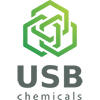Manganese, an essential trace element, functions as an enzyme activator and is a constituent of several enzymes. Primary signs of manganese deficiency are impaired growth, skeletal abnormalities, depressed reproductive function, ataxia of the newborn and faults in lipid and carbohydrate metabolism. Manganous oxide and manganous sulphate monohydrate are safe sources of manganese for all animal species/categories, provided that the current maximum total contents of manganese authorised in feed are respected. Generally, dietary manganese does not appear to cause any adverse health effects in the population and has not proven to be a risk at the usual intake levels. Manganese intake resulting from the consumption of tissues and products of animal origin is low and not of concern for the safety of consumers, including more sensitive subgroups such as infants and elderly people. It is concluded that the use of manganous oxide and manganous sulphate monohydrate in animal nutrition is of no concern for the safety of consumers, provided that the current maximum total contents of manganese authorised in feed are respected. The handling of manganous oxide and manganous sulphate monohydrate poses a risk to users upon inhalation exposure. The additive manganous oxide should be considered as a potential skin and eye irritant and as a dermal sensitiser. Manganous sulphate monohydrate is not irritating to skin but it is an eye irritant; it is likely not a dermal sensitiser. The use of manganous oxide and manganous sulphate monohydrate in animal nutrition for all animal species is not of concern for the environment, provided that the current maximum total contents of manganese authorised in feed are respected. Manganous oxide and manganous sulphate monohydrate are efficacious sources of manganese in meeting animals’ requirements.

